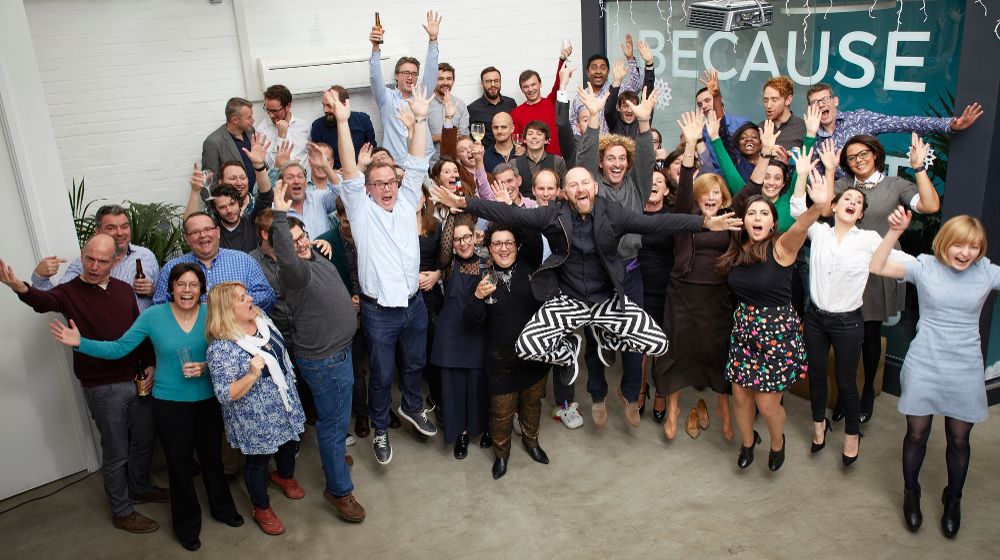



Get new exclusive access to healthcare business reports & breaking news




This spring, an investor-backed British artificial intelligence start-up, BenevolentAI, received $115 million to prepare an ALS drug for clinical trials and expand in other areas. This helped the company reach a total pre-money valuation of $2 billion.
The achievement was much-touted in the news for two reasons: the company’s bold promises about its ability to get an ALS drug into clinical trial phase by next year, and also because of legitimate fears that Great Britain’s departure from the EU would affect BenevolentAI.
Ken Mulvany, the founder and Chairman of BenevolentAI, said that the UK remained an “attractive hub for science”. The British government’s strategy towards the AI sector is beneficial, especially since the creation of a special support system for education and skill-growing in this specialized area.
“There’s a tremendous heritage of scientific innovation here in the U.K.,” Mulvany told CNBC’s “Street Signs Europe”. His said the new round of funding will help his company scale drug development as well as its AI platform.
The majority of BenevolentAI’s investors are from the United States, expanding the Company’s global investor footprint. This point speaks volumes about big pharma’s interest in the company’s results. Meanwhile, Europe wants to keep the golden egg-laying goose in its backyard, since Credit Suisse acted as the only placement agent.
This AI technology will decipher the molecular process of disease and match patients with the most appropriate drug treatments.
Ken Mulvany is confident that compared to the traditional pharmaceutical industry process, his company will shorten the time needed for the early stages of drug development by 60%.


Founded in 2013, by biotech entrepreneur Ken Mulvany, benevolent.ai was formed following the sale of Proximagen, a pharmaceutical company that Mulvany also founded.
In 2016, it hired IBM’s AI expert Jérôme Pesenti, ex-VP of Watson Core Technology, to head up its technology division.
The company employed 90 people in the UK and US last March.
Since 2013, the company has acquired more than $200m to further its research.
Its platform is being used to develop treatments for incurable diseases such as motor neuron disease, Parkinson’s disease, glioblastoma and sarcopenia.
It now has more than 20 drug programs, and intends to use the newly acquired funds to direct its forces to innovate in other areas of expertise, such as advanced materials, agriculture and energy storage.
BenevolentAI wants to break barriers in drug discovery, innovating by challenging the way things were previously done. According to a recent press release:
To achieve this, BenevolentAI has created a bioscience machine brain, purpose-built to discover new medicines and cures for disease. Proprietary algorithms perform sophisticated reasoning on over 50 billion ingested and contextualised facts to extract knowledge and generate complex insights into the cause of diseases that have, until now, eluded human understanding.
The company’s officials seem to be aware that convincing the industry to employ a new method won’t be easy.
“The way the industry is set up is very traditional. Drug discovery hasn’t really changed much,” Jackie Hunter, a director at BenevolentAI, says.
She adds that her company’s goal is to convince big pharma that their approach works for human biomedicine. If they are successful, the company plans to expand its scope of work to other areas such as veterinary medicine or agrotech.
The current focus for BenevolentAI is now researching new therapies for ALS. Next year might even bring a drug clinical trial, using a brand new molecule.
“When we ran the query about ALS, our system came back with a ranked list of hypotheses,” says Hunter. She added that, since there is no such thing as an absolutely certain outcome of the system’s diagnosis, the process they ultimately use will be a compromise between what AI suggests and scientists think.
For the ALS targeted drug, BenevolentAI isolated five new compounds which were then tested on cell cultures infected with motor neurone disease. “One failed the test, three worked as well as current gold standard and one worked exceptionally well,” Hunter says.
Not everybody is so optimistic about the interplay of AI & pharma research, though.
Not only could receipt of further funding be challenging, but if promises made are not delivered in due time, convincing scientists that BenevolentAI means business would prove difficult.
“Who, exactly, “contextualised” those fifty billion facts for it [the bioscience machine brain] to chomp on?”, chemist and science blogger Derek Lowe inquires.
Hugo Ceulemans, scientific director of discovery data science at Janssen Pharmaceuticals, supports AI, believing it will never replace human scientists, but will allow them to focus on innovation, while AI does the boring, repetitive part of the job. He calls AI an “idiot savant”, explaining that, although AI is very good within its designated slice of expertise, it remains completely naive outside of that. The machine does countless correlations within the data it is provided, and presents the scientist with some suggestions, but the final decision remains human.
As we said before in a recent featured article at healthcareweekly.com, biotechnology has already deeply changed the way humans are diagnosed and treated. In light of these developments we are very bullish on BenevolentAI’s super brain initiative, even if results may not be shown as quickly as the company may hope for.